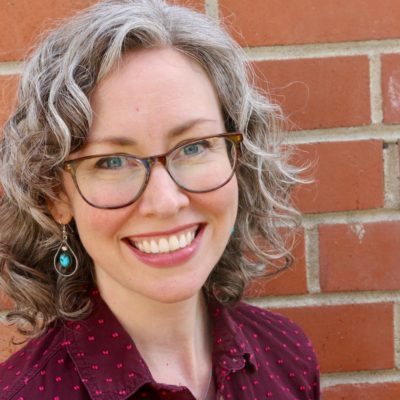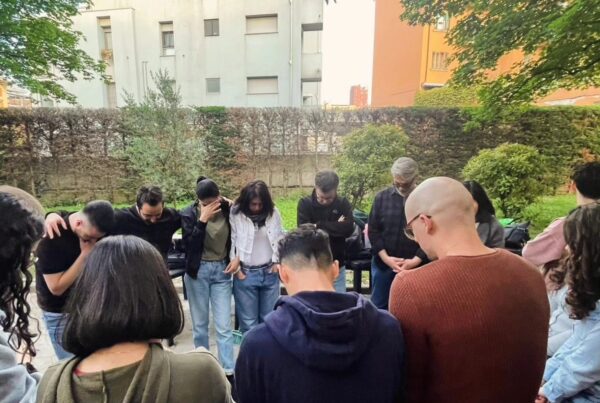Missionaries know the vital necessity of culture and language acquisition. They diligently labor to understand the heart of their people group—to speak their language, live among them, know them, think like them, love them—and so effectively proclaim the gospel to them.
But what does this have to do with church planting in rural America?
Paul Gordon, Acts 29 pastor of Terra Nova Church in North Adams, Massachusetts, seeks a deep understanding of his community’s culture that shapes the church’s ministry. Paul and his wife, Nicole, held a Bible study for two years before launching Sunday morning gatherings so they could learn about, befriend, and pray for their city. Their missionary-like focus helps them minister the gospel in the rural community they love.
Understanding the Culture
With 12,000 people, North Adams is Massachusetts’s smallest city. You’ll find bright autumn colors, plenty of winter snow, and beautiful old brick buildings here. Paul Gordon says you’ll also find a post-industrial mill town “trying to figure out its identity in a new economy.”
North Adams is “a prototypical example of small-city New England life,” says Paul. Textile mills sprung up along New England’s riverways in the 19th century, but most manufacturing left after the World Wars. The remaining population consists of “poor, working-class, rural New Englanders,” and food insecurity, drug addiction, domestic violence, and low education abound.
In contrast to this gritty, blue-collar population, people are now coming from Boston and New York City to repurpose old mills into trendy businesses that may not directly serve the needs of the locals. “There’s this weird cultural thing happening between rural, working-class, ‘my family’s been here for generations’ people and a kind of hipster renewal through the arts and tourism,” Paul says. Their missionary-like focus helps them minister the gospel in the rural community they understand and love. Click To Tweet
Loving Neighbors
Terra Nova observed many nonprofits trying to serve North Adams with few resources—particularly with limited access to meeting spaces. They saw a need. So they created “The Green,” a community center that both provided a place for Terra Nova Church to gather and offered space for local charities who signed up as members. They named The Green after the iconic New England village green—the central gathering space in a city—and central to the historic village green was often a church.
Terra Nova wanted to bridge the culture gap, so they designed The Green to be welcoming for both groups. “We wanted to consistently get people to show up in a safe space to build relationships.” Everything was going so well . . . and then Covid-19 struck. The Green didn’t have the financial reserves to keep going. It dissolved as a nonprofit, and Terra Nova took over the lease.
“We haven’t yet re-opened the nonprofit,” says Paul, “but the church has made the space available again. People in the community still know it as The Green.” As this church proclaims the gospel and walks in obedient love for the community around them, the Lord is making them a light pointing to Christ.
Nurturing Partnership
Paul and David Pinckney (Rural Strategist for Acts 29’s Church in Hard Places) partnered to create The Village Green Collective, launching next year, to pull together like-minded pastors wanting to partner in church planting in rural New England. Though this isn’t an Acts 29 initiative, Acts 29 assessment is the tool these pastors plan to use for church planters in rural New England, and several of the pastors involved are now pursuing membership with the network. As this church proclaims the gospel and walks in obedient love for the community around them, the Lord is making them a light pointing to Christ. Click To Tweet
The Acts 29 Pastors and Wives Retreat has been another means of partnership and encouragement. “For us,” Paul says, “it’s a reminder: oh yes, God is doing a ton of stuff all over. That’s a huge gift that fills our tank up so we’re willing to come back to a small place and be faithful to serve here.”
Counting the Cost
Terra Nova exists in a progressive culture that views orthodox Christianity with suspicion, apathy, or hostility. “We have to instill in our people the courage that Jesus is worth taking a chance for, even when it’s scary,” says Paul. “We’re saying that I, as the pastor, am not the missionary; we as the church are the missionaries.”
Paul and Nicole pray for steadfastness. Living in an isolated place means they and their kids miss out on a lot. They’re laboring in a slow-growing context to build a small church—Paul says it was more than five years before the first baptism. They’re tempted to think, Is this really worth it when an hour west is a larger city with our familiar schools, our sending church family of 300–400, and friends we left behind? Rural pastors, take heart. Remain. Rest in Jesus. Steadfastly proclaim him, and let God increase the fruit in his perfect time. Click To Tweet
“My wife and I wish we’d started this journey with more of a missionary mindset than a church-planting mindset.” Paul says that if they expected life to look more like missionary Adoniram Judson’s, that would’ve shaped their expectations differently. “Judson served more than seven years before one conversion; he lost a wife and two children, and yet he remained.” But for them, steadfastness means “believing that the decisions we’re making are worth it,” says Paul, “and that God is honored in the sacrifices.”
Rural pastors, take heart. Remain. Rest in Jesus. Steadfastly proclaim him, and let God increase the fruit in his perfect time.










